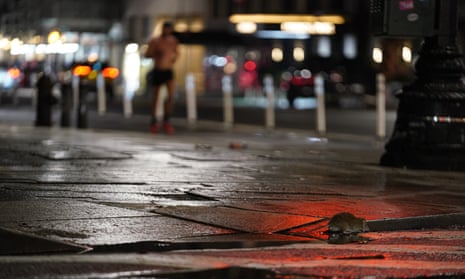New York City rats may be renowned for carrying pizza through the subway but according to a new study, they can also carry the virus behind Covid-19.
The study released on Thursday in mBio, an open-access journal of the American Society for Microbiology, concluded that New York rats among a population of roughly 8 million are susceptible to three Covid variants.
The federal Centers for Disease Control and Prevention (CDC) has determined that animal-to-human transmission of Covid-19 is rare, noting that in most cases animals are infected by humans.
There is “no evidence that animals play a significant role in spreading SARS-CoV-2, the virus that causes Covid-19, to people”, the CDC notes on its website.
But the study’s principal investigator, Dr Henry Wan, said the new findings highlighted the need for further examination on the risk of the virus “in rat populations to determine if the virus is circulating in the animals and evolving into new strains that could pose a risk to humans”.
Wan, director of the Center for Influenza and Emerging Infectious Diseases at the University of Missouri, said the study was one of the first to show how Covid-19 variants “can cause infections in the wild rat populations in a major US urban area”.
Studies of rats in Hong Kong and Belgium found they were exposed to the virus behind Covid-19, though it is unclear which variant.
In the New York study, researchers conducted virological studies and genomic sequencing on samples from 79 rats.
They trapped rats mostly in parks in Brooklyn and with the New York City parks department’s permission, particularly “in and around locations surrounding wastewater systems”.
Of the rats studied, 13 tested positive for Covid-19. Researchers then conducted a virus challenge study and found that Alpha, Delta and Omicron variants caused infections in Sprague Dawley rats.
“Overall, our work in this space shows that animals can play a role in pandemics that impact humans,” the study authors wrote, “and it’s important that we continue to increase our understanding so we can protect both human and animal health.”
